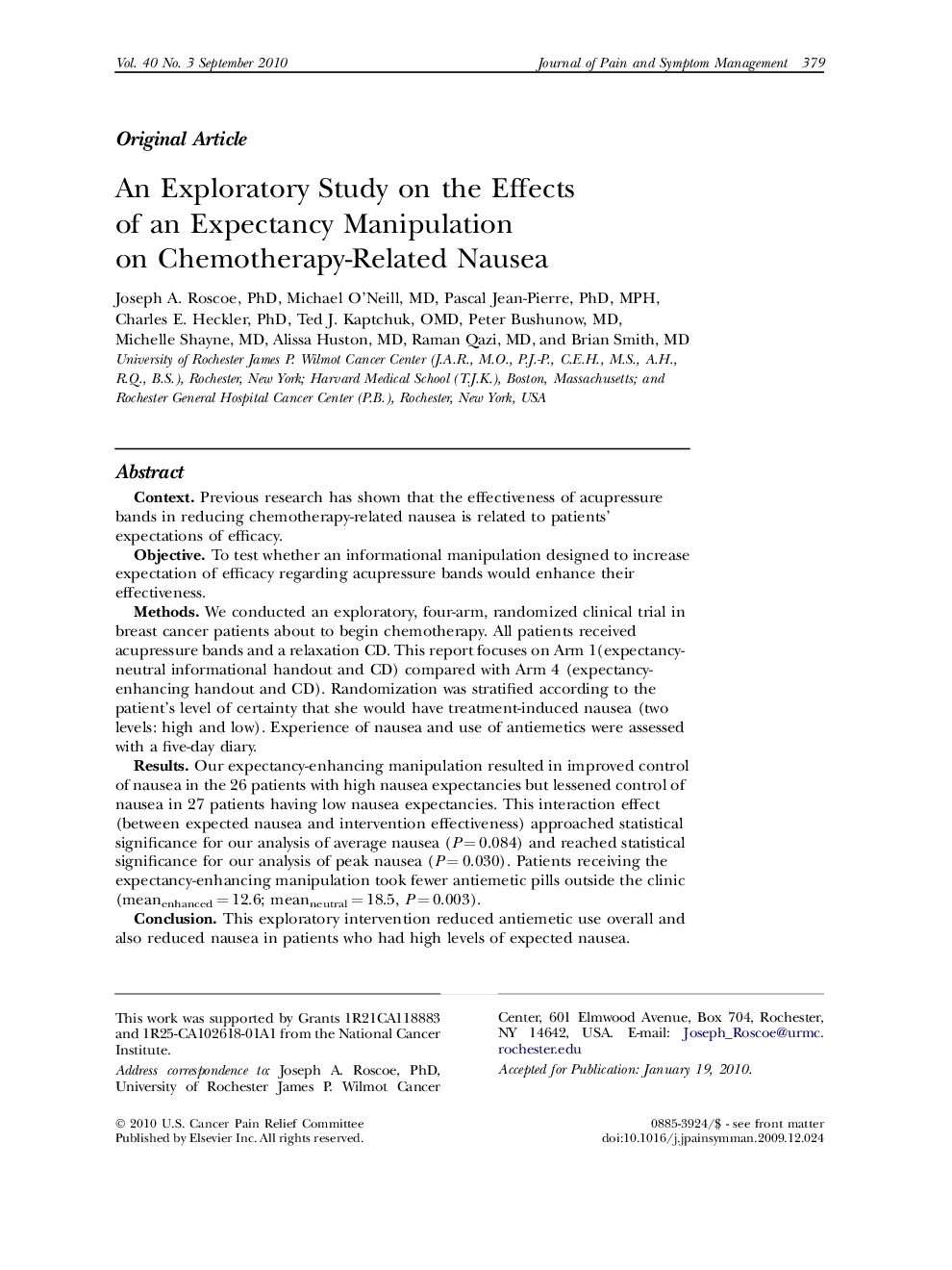| Article ID | Journal | Published Year | Pages | File Type |
|---|---|---|---|---|
| 2736251 | Journal of Pain and Symptom Management | 2010 | 12 Pages |
ContextPrevious research has shown that the effectiveness of acupressure bands in reducing chemotherapy-related nausea is related to patients' expectations of efficacy.ObjectiveTo test whether an informational manipulation designed to increase expectation of efficacy regarding acupressure bands would enhance their effectiveness.MethodsWe conducted an exploratory, four-arm, randomized clinical trial in breast cancer patients about to begin chemotherapy. All patients received acupressure bands and a relaxation CD. This report focuses on Arm 1(expectancy-neutral informational handout and CD) compared with Arm 4 (expectancy-enhancing handout and CD). Randomization was stratified according to the patient's level of certainty that she would have treatment-induced nausea (two levels: high and low). Experience of nausea and use of antiemetics were assessed with a five-day diary.ResultsOur expectancy-enhancing manipulation resulted in improved control of nausea in the 26 patients with high nausea expectancies but lessened control of nausea in 27 patients having low nausea expectancies. This interaction effect (between expected nausea and intervention effectiveness) approached statistical significance for our analysis of average nausea (P = 0.084) and reached statistical significance for our analysis of peak nausea (P = 0.030). Patients receiving the expectancy-enhancing manipulation took fewer antiemetic pills outside the clinic (meanenhanced = 12.6; meanneutral = 18.5, P = 0.003).ConclusionThis exploratory intervention reduced antiemetic use overall and also reduced nausea in patients who had high levels of expected nausea. Interestingly, it increased nausea in patients who had low expectancies for nausea. Confirmatory research is warranted.
